The hair care industry is undergoing a significant transformation, driven by evolving consumer preferences, technological advancements, and the growing influence of social media. As we move into 2025, understanding these trends is crucial for businesses looking to stay competitive in this dynamic market. This article delves into the key trends shaping the hair care industry, providing a comprehensive overview of the market dynamics.
Table of Contents:
Market Overview: Understanding the Hair Care Industry Dynamics
The Rise of Natural and Organic Hair Care Products
Consumer Demand for Chemical-Free Solutions
Popular Natural Ingredients Transforming Hair Care
Brands Leading the Natural Hair Care Movement
Technological Innovations Shaping Hair Care
Smart Hair Care Devices and Their Impact
Advanced Formulations for Better Hair Health
The Role of AI in Personalized Hair Care Solutions
The Influence of Social Media on Hair Care Trends
Viral Hair Care Products and Their Popularity
Influencers Driving Hair Care Product Choices
Social Media Platforms as Hair Care Marketplaces
Wrapping Up the Latest Hair Care Trends
Market Overview: Understanding the Hair Care Industry Dynamics
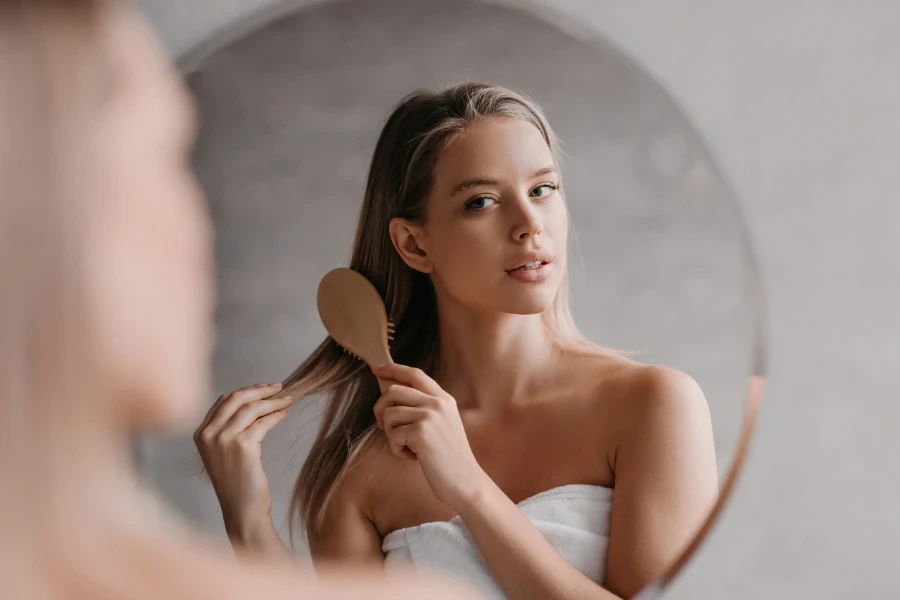
Market Size and Growth
The global hair care market is poised for substantial growth, with its size estimated at USD 90.80 billion in 2024 and projected to reach USD 107.31 billion by 2029, growing at a CAGR of 3.40% during the forecast period (2024-2029). This growth is driven by several factors, including improved quality of life, the impact of beauty and personal care on self-esteem and social connections, and a steady consumer shift toward premium and luxury hair care brands. The increasing demand for multifunctional hair care products that address various hair concerns, such as dryness, frizz, and damage, is also contributing to market expansion.
Consumer Preferences and Trends
Consumers are becoming more conscious about their hair health and are increasingly adopting natural and traditional measures for hair enrichment and smoothening. This shift is reflected in the rising demand for natural and organic hair care products. According to a professional report, the demand for natural/organic, vegan hair care products is growing due to rising celebrity endorsements and awareness of the harmful effects of synthetic and chemical products. Additionally, the availability and affordability of hair care products, such as shampoo, conditioner, oil, and spray, are further driving market growth.
Technological Advancements
Technological advancements are playing a pivotal role in the hair care industry. Innovations such as novel antibacterial materials, volume enhancement, controlled release and encapsulation of actives, stability enhancement, and fiber strengthening and thickening are boosting the popularity of hair care products. These advancements are creating a lucrative demand for hairstyles and contributing to the overall growth of the hair care market. The integration of AI in personalized hair care solutions is another significant trend, offering consumers customized products tailored to their specific hair needs.
Regional Insights
Asia-Pacific holds the largest market share in the global hair care industry, driven by a significant population shift to urban areas and heightened awareness of hair care practices. Collaborations between various brands and celebrities further bolster market growth in this region. For instance, in August 2023, The Moms Co., a leading D2C brand in India, launched a digital video campaign featuring Neha Dhupia to promote its Natural Protein Hair Care Range. The rising demand for hair colorants, influenced by changing lifestyles and higher spending on personal care products, is also contributing to market growth in the Asia-Pacific region.
In conclusion, the hair care industry is experiencing dynamic changes driven by consumer preferences, technological advancements, and regional trends. Businesses must stay informed about these trends to remain competitive and meet the evolving demands of consumers. The following sections will delve deeper into the specific trends shaping the hair care market, providing valuable insights for industry stakeholders.
The Rise of Natural and Organic Hair Care Products
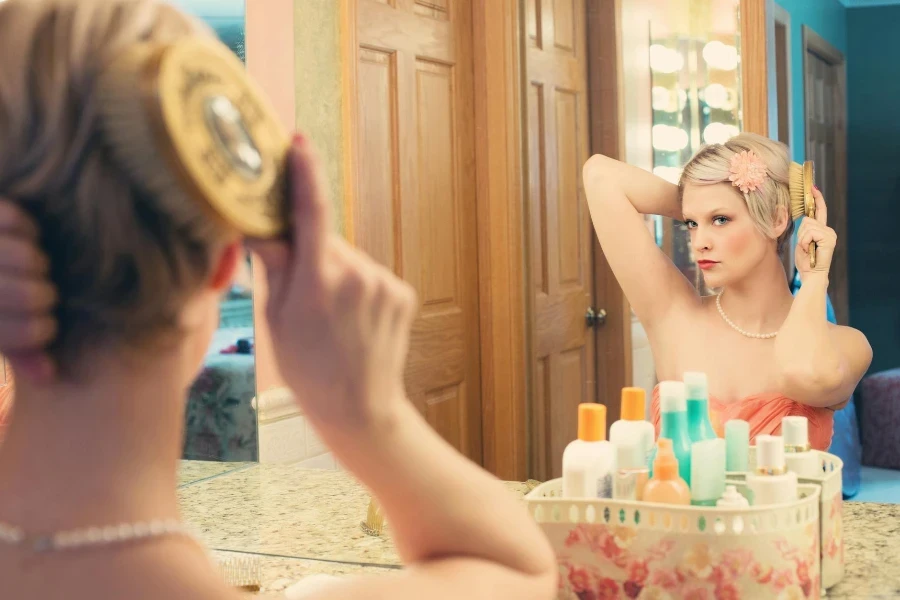
Consumer Demand for Chemical-Free Solutions
In recent years, there has been a significant shift in consumer preferences towards natural and organic hair care products. This trend is driven by a growing awareness of the potential health risks associated with chemical-laden products and a desire for more sustainable and eco-friendly options. According to a professional report, the global market for natural and organic personal care products is expected to reach $25.11 billion by 2025, reflecting a compound annual growth rate (CAGR) of 9.4%. This surge in demand is largely fueled by consumers’ increasing inclination towards products that are free from harmful chemicals such as sulfates, parabens, and synthetic fragrances.
The modern consumer is more informed and conscientious, seeking transparency in product ingredients and ethical sourcing practices. This shift is not just a fleeting trend but a fundamental change in consumer behavior, emphasizing the importance of health and wellness. Brands that can effectively communicate their commitment to natural and organic formulations are likely to gain a competitive edge in the market.
Popular Natural Ingredients Transforming Hair Care
The rise of natural and organic hair care products has brought several powerful ingredients into the spotlight. Ingredients such as argan oil, coconut oil, aloe vera, and shea butter have become staples in many hair care routines due to their nourishing and restorative properties. Argan oil, often referred to as “liquid gold,” is rich in essential fatty acids and vitamin E, making it an excellent moisturizer and conditioner. Coconut oil, known for its deep conditioning properties, helps to reduce protein loss in hair and promotes scalp health.
Aloe vera, with its soothing and anti-inflammatory properties, is highly effective in treating scalp conditions and promoting hair growth. Shea butter, derived from the nuts of the shea tree, is renowned for its ability to deeply moisturize and protect hair from environmental damage. These ingredients, among others, are transforming the hair care industry by providing consumers with effective, natural alternatives to traditional chemical-based products.
Brands Leading the Natural Hair Care Movement
Several brands have emerged as leaders in the natural and organic hair care movement, setting new standards for product quality and sustainability. Brands like Aveda, Briogeo, and SheaMoisture have built their reputations on the use of natural ingredients and ethical sourcing practices. Aveda, for instance, has been a pioneer in the use of plant-based ingredients and has a strong commitment to environmental sustainability. Briogeo, known for its “6-Free Hair Care” philosophy, offers products that are free from sulfates, silicones, parabens, phthalates, artificial dyes, and DEA.
SheaMoisture, with its rich heritage and focus on community commerce, sources its shea butter from women’s cooperatives in Ghana, ensuring fair trade practices. These brands, among others, are not only meeting the growing demand for natural and organic products but are also setting an example for the industry by prioritizing sustainability and ethical practices.
Technological Innovations Shaping Hair Care
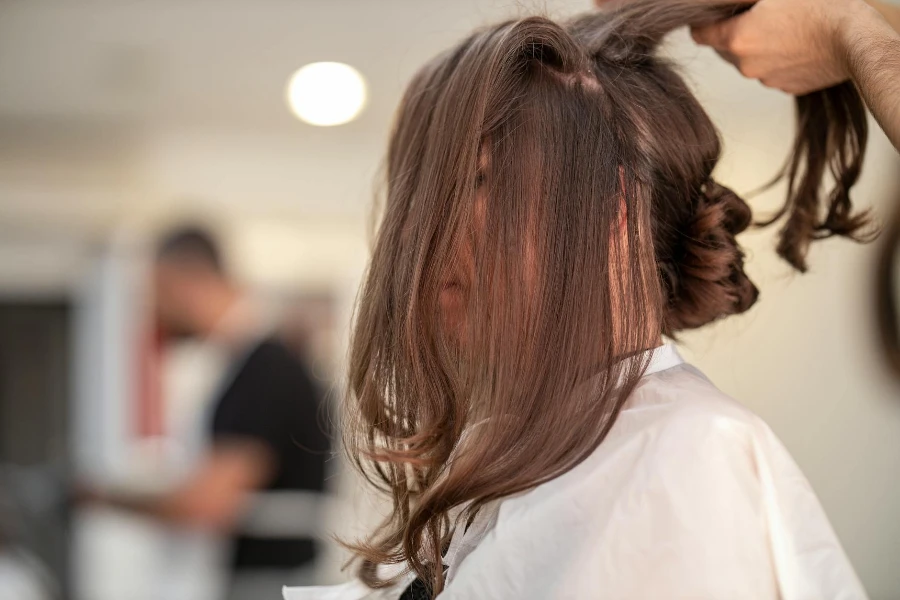
Smart Hair Care Devices and Their Impact
The integration of technology into hair care has revolutionized the industry, offering consumers innovative solutions for hair health and styling. Smart hair care devices, such as the Dyson Supersonic hair dryer and the L’Oréal Hair Coach, are equipped with advanced sensors and connectivity features that provide personalized hair care recommendations. These devices can analyze hair type, moisture levels, and styling habits to offer tailored advice and optimize hair care routines.
The impact of these smart devices extends beyond convenience, as they also promote healthier hair by minimizing damage caused by excessive heat and improper styling techniques. As technology continues to advance, the hair care industry is likely to see even more sophisticated devices that enhance the overall hair care experience.
Advanced Formulations for Better Hair Health
Advancements in hair care formulations are also playing a crucial role in improving hair health. The development of new ingredients and technologies has led to the creation of products that offer targeted solutions for various hair concerns. For example, the use of biomimetic peptides and plant stem cells in hair care products has shown promising results in promoting hair growth and repairing damaged hair.
Additionally, the incorporation of probiotics and prebiotics in hair care formulations is gaining traction, as these ingredients help to balance the scalp microbiome and improve overall scalp health. These advanced formulations are not only addressing common hair issues but are also paving the way for more personalized and effective hair care solutions.
The Role of AI in Personalized Hair Care Solutions
Artificial intelligence (AI) is transforming the hair care industry by enabling personalized hair care solutions. AI-powered tools and platforms, such as the ModiFace technology by L’Oréal and the Skin Coach tool by Garnier, use machine learning algorithms to analyze individual hair and scalp conditions. By taking into account factors such as hair type, environmental conditions, and personal preferences, these tools can recommend customized hair care routines and products.
The use of AI in hair care is not limited to product recommendations. It also extends to virtual try-on experiences, where consumers can see how different hair colors and styles would look on them before making a purchase. This level of personalization and interactivity is enhancing the consumer experience and driving engagement in the hair care industry.
The Influence of Social Media on Hair Care Trends
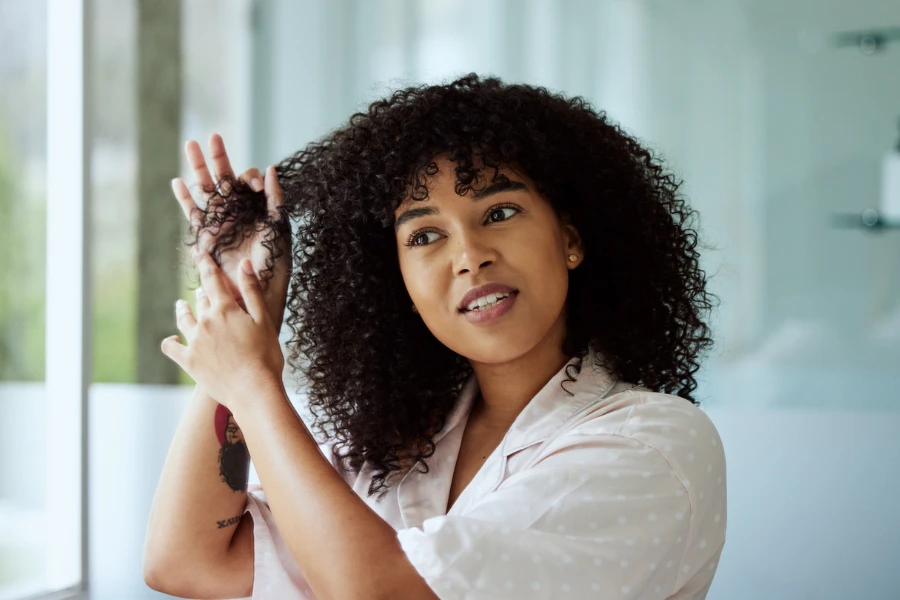
Viral Hair Care Products and Their Popularity
Social media platforms have become powerful drivers of hair care trends, with viral products gaining immense popularity and influencing consumer behavior. Platforms like Instagram, TikTok, and YouTube are filled with hair care tutorials, product reviews, and before-and-after transformations that capture the attention of millions of users. Products that go viral on these platforms often see a significant boost in sales and brand visibility.
For instance, the Olaplex hair treatment system gained widespread popularity through social media, with influencers and beauty enthusiasts raving about its transformative effects on damaged hair. Similarly, the rise of the “Curly Girl Method” on social media has led to increased demand for products that cater to curly and textured hair.
Influencers Driving Hair Care Product Choices
Influencers play a pivotal role in shaping hair care trends and product choices. With their large followings and trusted voices, influencers have the power to sway consumer opinions and drive purchasing decisions. Many hair care brands collaborate with influencers to promote their products and reach a wider audience.
Influencers often share their personal hair care routines, product recommendations, and styling tips, providing valuable insights and inspiration to their followers. This authentic and relatable content resonates with consumers and helps build brand loyalty. As the influence of social media continues to grow, the role of influencers in the hair care industry is expected to become even more significant.
Social Media Platforms as Hair Care Marketplaces
Social media platforms are not just influencing hair care trends; they are also becoming important marketplaces for hair care products. Features like Instagram Shopping and TikTok’s in-app shopping capabilities allow consumers to discover and purchase products directly from their favorite social media platforms. This seamless integration of content and commerce is transforming the way consumers shop for hair care products.
Brands are leveraging these platforms to create engaging and interactive shopping experiences, such as live-streamed product launches and virtual consultations. By tapping into the power of social media, hair care brands can connect with consumers in real-time and provide a more personalized and convenient shopping experience.
Wrapping Up the Latest Hair Care Trends
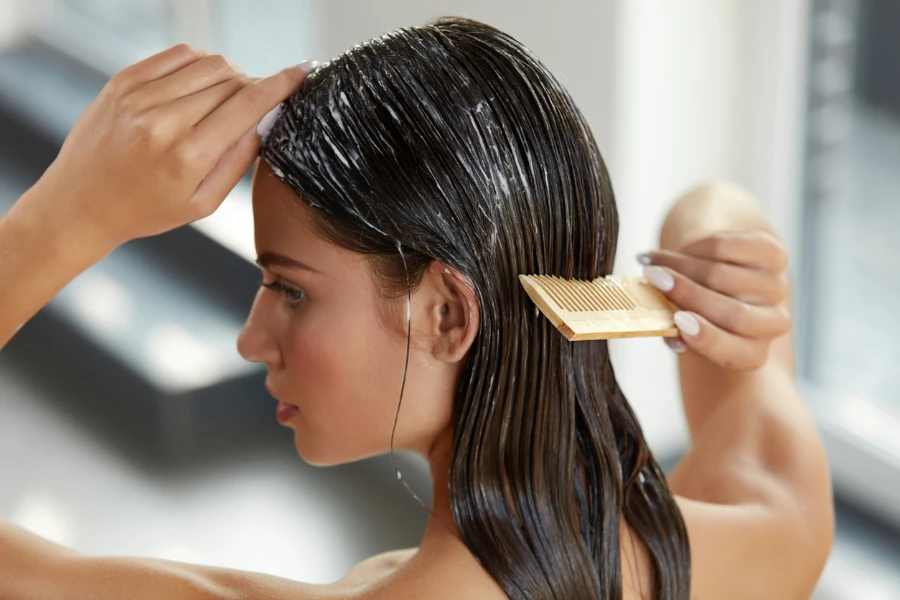
The hair care industry is undergoing a dynamic transformation, driven by consumer demand for natural and organic products, technological innovations, and the influence of social media. As consumers become more informed and conscientious, brands must prioritize transparency, sustainability, and personalization to stay ahead in this competitive market. By embracing these trends and leveraging the power of technology and social media, hair care brands can create meaningful connections with consumers and drive long-term growth.




